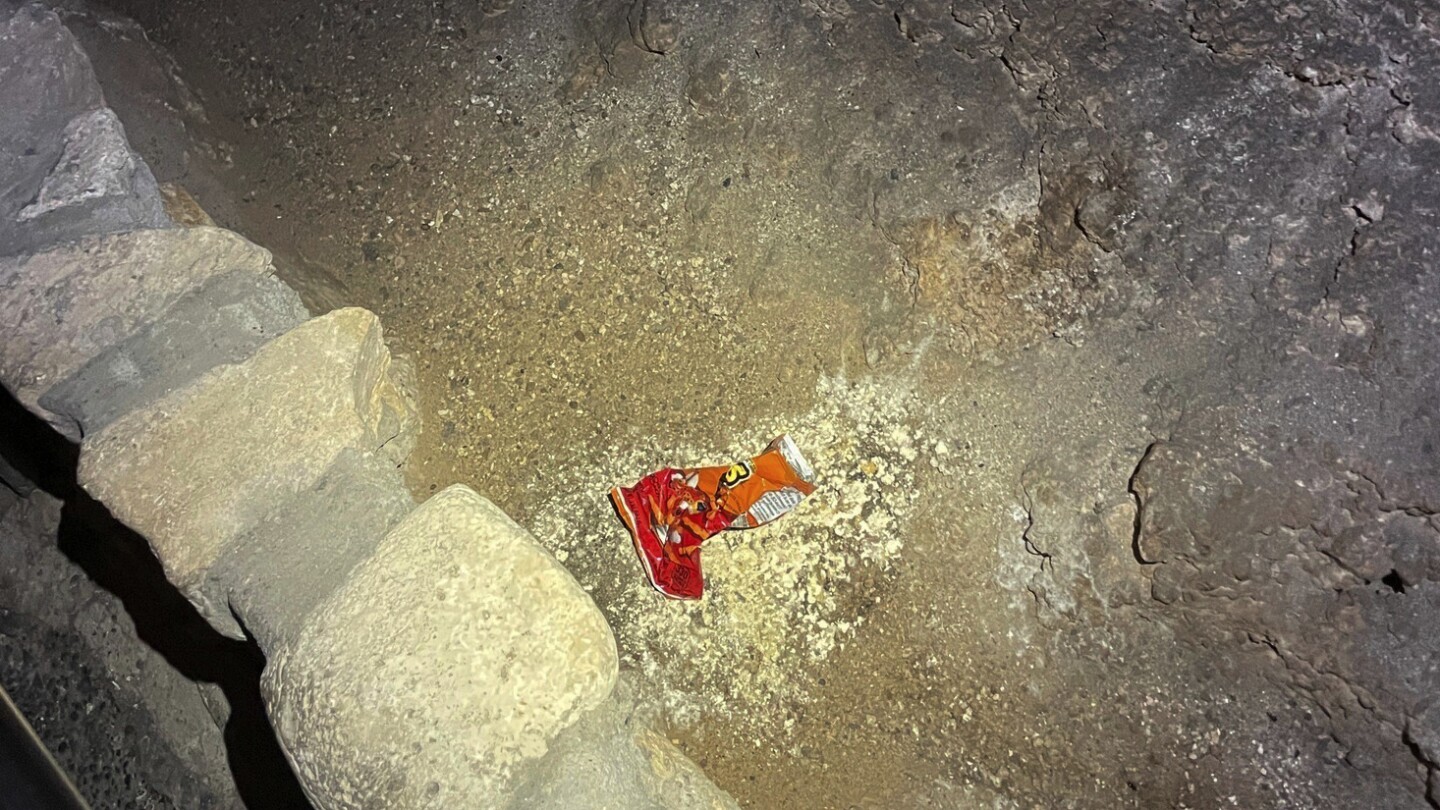"The bag could have been there a day or two or maybe just hours, but those salty morsels of processed corn made soft by thick humidity triggered the growth of mold on the cavern floor and on nearby cave formations.
“To the ecosystem of the cave it had a huge impact,” the park noted in a social media post, explaining that cave crickets, mites, spiders and flies soon organized to eat and disperse the foreign mess, essentially spreading the contamination."



The more closed off an ecosystem is, the more volatile and prone to change it tends to be. Yeah, birds pooping seeds in an easily-accessible forest is fine, but what about organisms in the cave who may not have developed immune systems to fight foreign contaminants? It runs the same risk as when Europeans colonized America and their diseases, which they were evolved to withstand, ended up wiping out up to 90% of Native Americans.
Pretty sure that’s called “evolution”. If the caves were so sensitive and sacred, why let people in at all? They bothered putting all that effort into making it a tourist destination, changing the landscape of the cave by adding walkways and railings. As if all that doesn’t already have an impact.
Yes evolution involves pressure, however the nuance here is how much pressure and how much change is happening how fast.
Unlike evolution, human can use rational thought and the scientific method to analysis and engage in and affect our environment. So we can learn from it as well as change it. Obvious perhaps, but I mentioned it as I work on a research vessel which constantly sees new unseen species of life which we don’t know the value of.
Of those that have been studied one is in trials as an anticancer drug. And it’s only one because the backlog of studies required is incredibly deep. Thousands at least, possibly tens of thousands. Millions if you include bacteria and virus. For ever new species we find it might take years to be fully cataloged, and then more years to be studied, before someone might find a tangential use for it.
So an unexplored cave, or an untouched lake in Antarctic is a vast wealth of potential cures, innovation, and ancient information which could change our lives. Yes we can and do put pressure on our ecosystem (and vice versa), but the Anthropocene extinction we are causing might include us if we don’t leverage our ability to abstract and cognate faster then evolutionary pressure pushes us.
Evolution takes millions of years.
Evolution happens whenever there is a pressure. It doesn’t have to take millions of years.